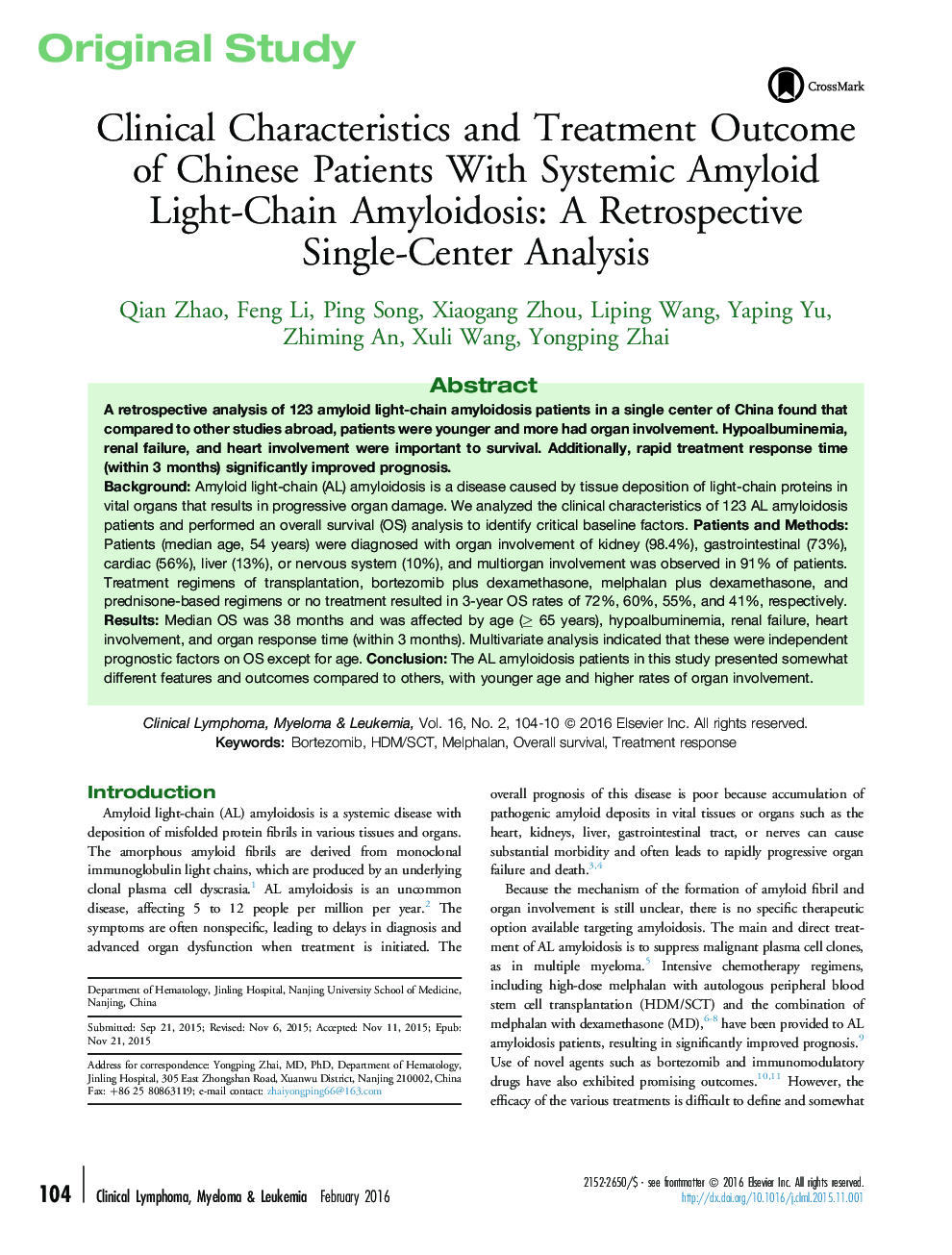| Article ID | Journal | Published Year | Pages | File Type |
|---|---|---|---|---|
| 2754295 | Clinical Lymphoma Myeloma and Leukemia | 2016 | 7 Pages |
BackgroundAmyloid light-chain (AL) amyloidosis is a disease caused by tissue deposition of light-chain proteins in vital organs that results in progressive organ damage. We analyzed the clinical characteristics of 123 AL amyloidosis patients and performed an overall survival (OS) analysis to identify critical baseline factors.Patients and MethodsPatients (median age, 54 years) were diagnosed with organ involvement of kidney (98.4%), gastrointestinal (73%), cardiac (56%), liver (13%), or nervous system (10%), and multiorgan involvement was observed in 91% of patients. Treatment regimens of transplantation, bortezomib plus dexamethasone, melphalan plus dexamethasone, and prednisone-based regimens or no treatment resulted in 3-year OS rates of 72%, 60%, 55%, and 41%, respectively.ResultsMedian OS was 38 months and was affected by age (≥ 65 years), hypoalbuminemia, renal failure, heart involvement, and organ response time (within 3 months). Multivariate analysis indicated that these were independent prognostic factors on OS except for age.ConclusionThe AL amyloidosis patients in this study presented somewhat different features and outcomes compared to others, with younger age and higher rates of organ involvement.
